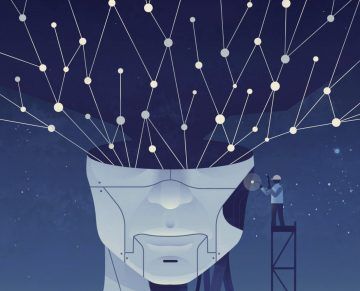Kevin Hartnett in Quanta:
 When we design a skyscraper we expect it will perform to specification: that the tower will support so much weight and be able to withstand an earthquake of a certain strength.
When we design a skyscraper we expect it will perform to specification: that the tower will support so much weight and be able to withstand an earthquake of a certain strength.
But with one of the most important technologies of the modern world, we’re effectively building blind. We play with different designs, tinker with different setups, but until we take it out for a test run, we don’t really know what it can do or where it will fail.
This technology is the neural network, which underpins today’s most advanced artificial intelligence systems. Increasingly, neural networks are moving into the core areas of society: They determine what we learn of the world through our social media feeds, they help doctors diagnose illnesses, and they even influence whether a person convicted of a crime will spend time in jail.
Yet “the best approximation to what we know is that we know almost nothing about how neural networks actually work and what a really insightful theory would be,” said Boris Hanin, a mathematician at Texas A&M University and a visiting scientist at Facebook AI Research who studies neural networks.
More here.
